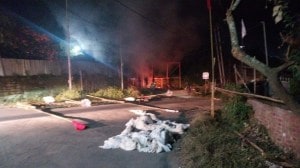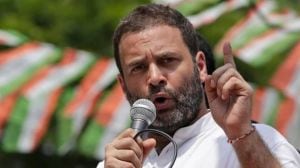MP task force ignores advice on Bhopal gas leak waste
The panel had recommended that Dow Chemical should dispose the waste in the US. But it is now headed for Ankleshwar

The decision to dispose the 1984 Bhopal Gas Tragedy waste in Ankleshwar in Gujarat has been contentious from the start. P M Bhargava, a member of the Technical Sub Committee (TSC) appointed by the Madhya Pradesh High Court to look into the disposal of the waste, had raised objections about disposing the waste anywhere in India.
In his report to the Madhya Pradesh Task Force, appointed to investigate the case, he had recommended that the waste be shipped back to Dow Chemical (formerly Union Carbide), who have won the disposal case. However, the Task Force chose to circumvent his recommendations.
Bhargava, also the vice chairman of National Knowledge Commission, member of the National Security Advisory board in his advisory capacity said, “I had recommended that the present owners — Dow Chemicals should dispose the waste not in India, but in the US,” when his recommendations did not figure out in the final report.
While Ankleshwar is one of the largest chemical industry hubs in the country, activists point out that it has no great track record in chemical waste disposal. The proposal, therefore, has the locals opposing it.
Bhargava and J P Gupta were part of a two member technical committee appointed by the Madhya Pradesh High Court. Bhargava is founder chairman of Centre for Cellular and Molecular Biology, while Gupta is an academician at IIT, Kanpur.
Speaking to The Indian Express, Bhargava said that the minutes of the Task Force meeting did not contain all the suggestions of the TSC. “The Task Force had omitted parts of the TSC report that strongly suggested that the waste be shipped back to Dow Chemicals for disposal in US,” said Bhargava from Hyderabad.
Documents in the possession of The Indian Express prove that the Task Force in its ninth meeting held on October 16, 2006, had only retained the suggestion to ship the waste to the incinerator in Ankleshwar for disposal, which they recommended provisionally only under strict conditions.
Instead of the Indian government, which is footing the disposal bill, the committee had strongly held that Dow Chemicals should be responsible for disposing the waste. The TSC had stated that taking the waste out of the country was “the only fair, ethical, proper, legal and desirable way of taking care of the problem.”
In a letter addressed to B K Singh, the member-secretary of the Madhya Pradesh Pollution Control Board and P D Meena, the chairman of the MPPCB, Bhargava had asked Singh why he had received only two pages of the minutes of the Task Force meeting, and had asked for the rest of the pages.
Photos




- 01
- 02
- 03
- 04
- 05



























